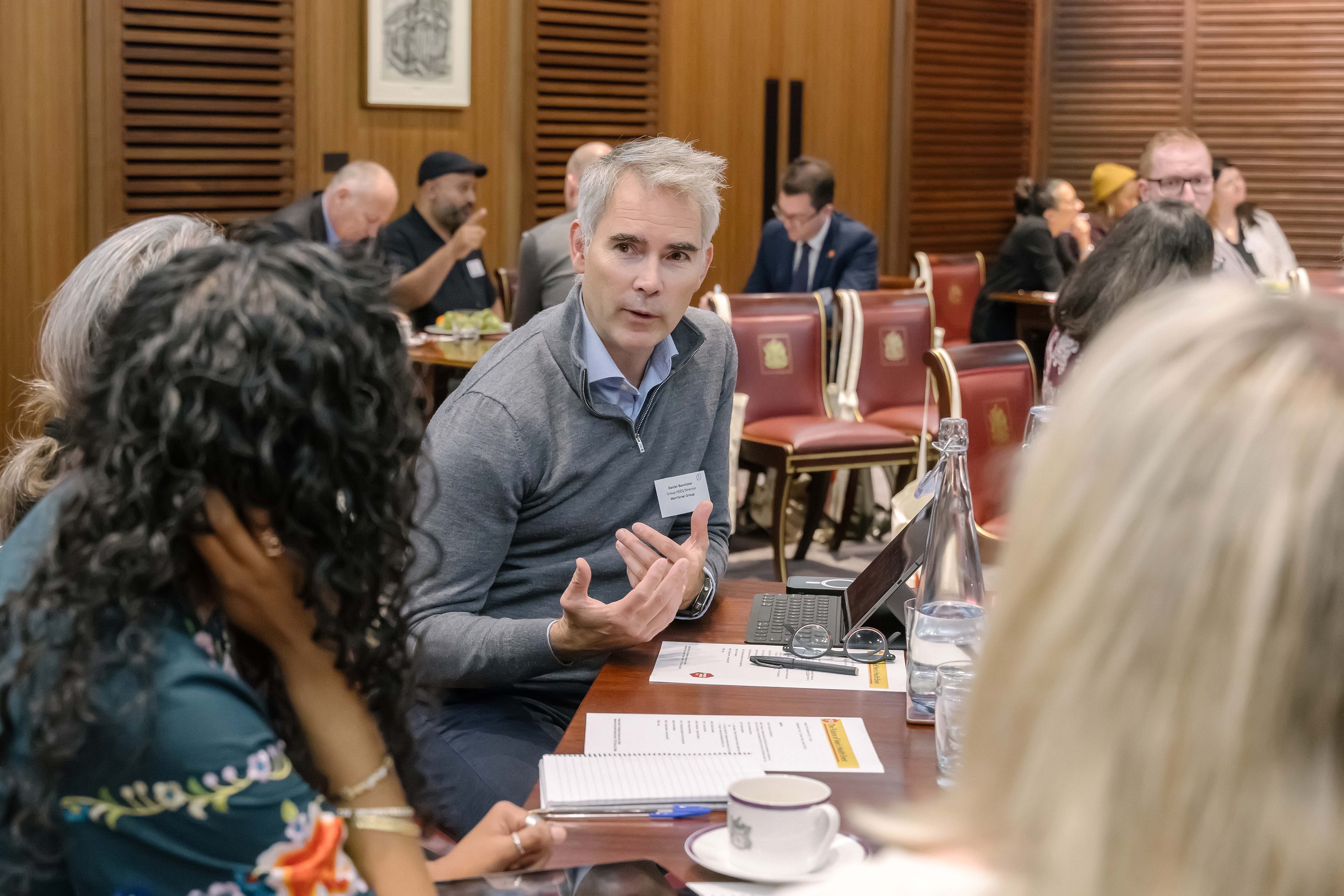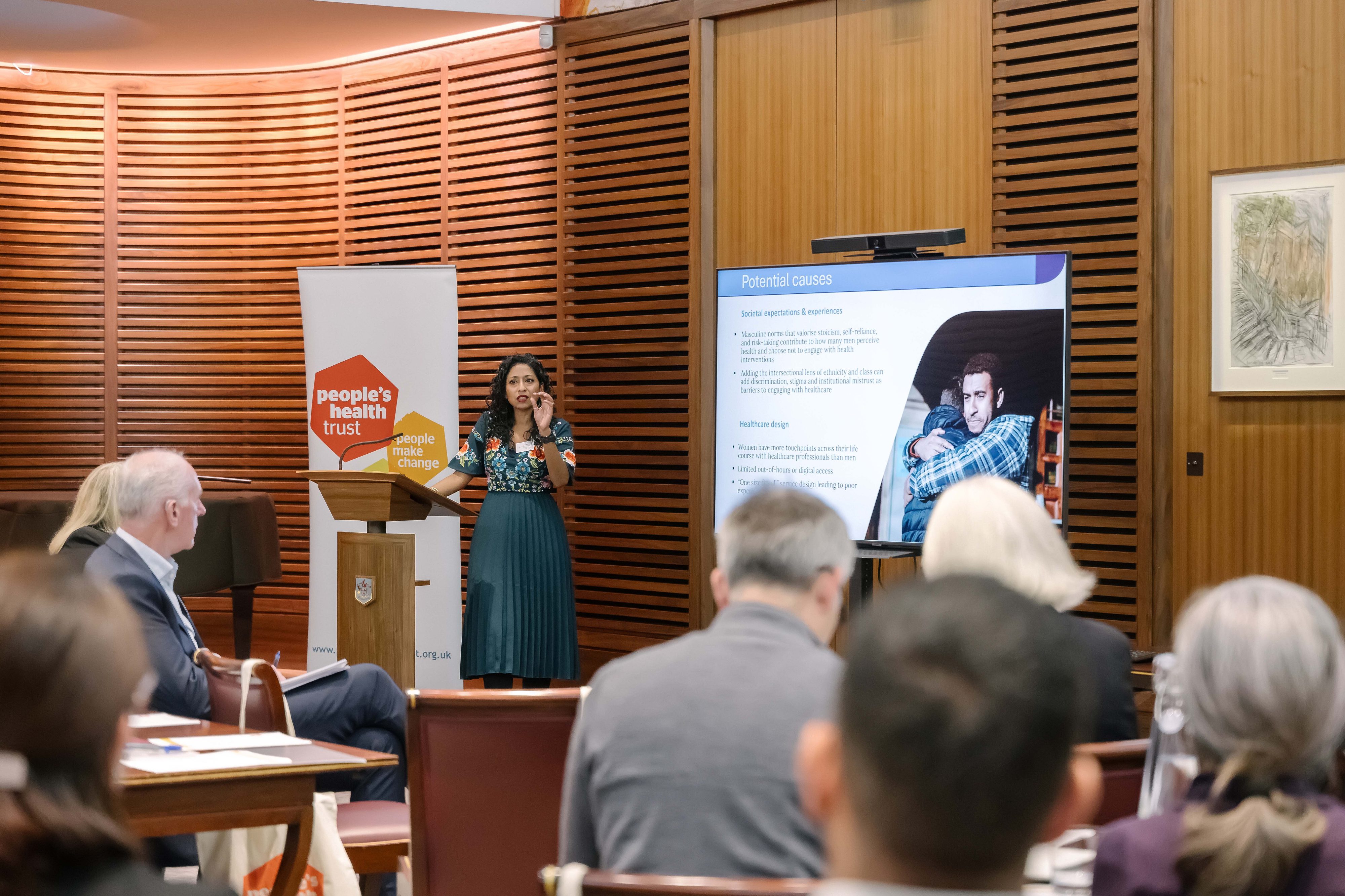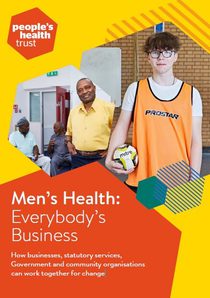Helping businesses to better understand and support the health of male colleagues
Men’s health is in crisis
On average, men from disadvantaged communities are dying too young and spending up to 20 years of their lives in poor health because services and systems are not fully meeting their needs. Men are disproportionately affected by cancer, cardiovascular disease, type 2 diabetes and suicide – yet are less likely to ask for, or accept, help than women.
These men are not just statistics, they are our dads, our partners, our sons and our brothers, and they need our help.

Men born in England’s most deprived areas can expect to die nearly 11 years earlier than men born in a wealthy areas. Worse still, they will spend almost 20 years of their lives in poor health - Office for National Statistics
We connected government, community experts and businesses to discuss driving change at our Future of Men’s Health event
The government’s focus on the first ever Men’s Health Strategy reflects the need for urgent intervention in the men’s health space. To support this vital piece of work, we interviewed our national network of community partners that specialise in men’s health to develop an evidence-based report that led to a rich conversation with global employers such as Aviva, BT, Centrica, The Clancy Group, ITV, McGinley, Morrisroe and Nando's, where we asked the question: What is your biggest challenge when supporting men’s health?

Businesses shared that poor health is impacting their workforce and business
The discussion highlighted both the pressures facing workforces and the opportunities available for employers to create healthier, more supportive working environments. We heard some strong themes coming through from the businesses in the room; for example, the complexities of managing health for different demographics of men; the struggle to speak to men in a way that resonates and inspires action; and ensuring that businesses are investing in the right interventions that actually make a difference.
Business and community groups alike concluded that, reaching men at work is good for employees and good for business
What emerged clearly was the drive and willingness businesses have to support their employees, their families and communities, but they need strategies that work, are evidence-based, designed with men in mind, and delivered in partnership with trusted organisations. The conversation concluded that men’s health is not just an individual issue: it has direct implications for business performance, workforce resilience, families, and wider society – and therefore businesses have a responsibility to act.

Agreeing next steps
People’s Health Trust will convene a further event between businesses, communities and government in 2025, where we can provide a space for discussion and programme design that businesses can roll out to support their workforce. In the meantime, we will continue the conversation in our new Men’s Health Business Forum.
Men’s Health Fund
Men’s health is everybody’s business, and we are bringing together government, trusts and foundations, businesses and individuals to drive this vital work and maximise its impact – with the aim of raising £500,000 by May 2026. You can double your contribution - we will match the first £250k received.
You can join us by:
- Becoming a corporate partner
- Joining our Men's Health Fund as a Trust or Foundation
- Donating as an individual

